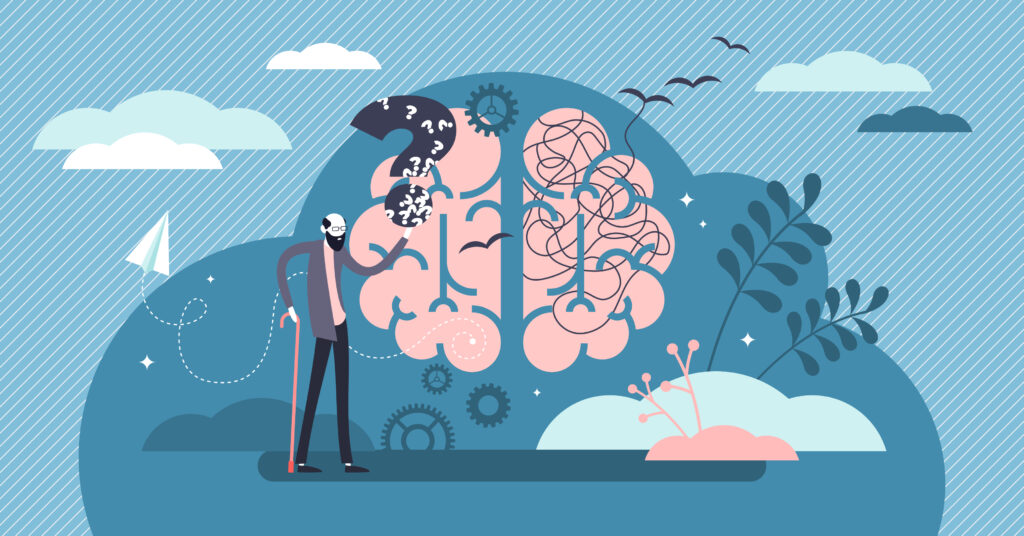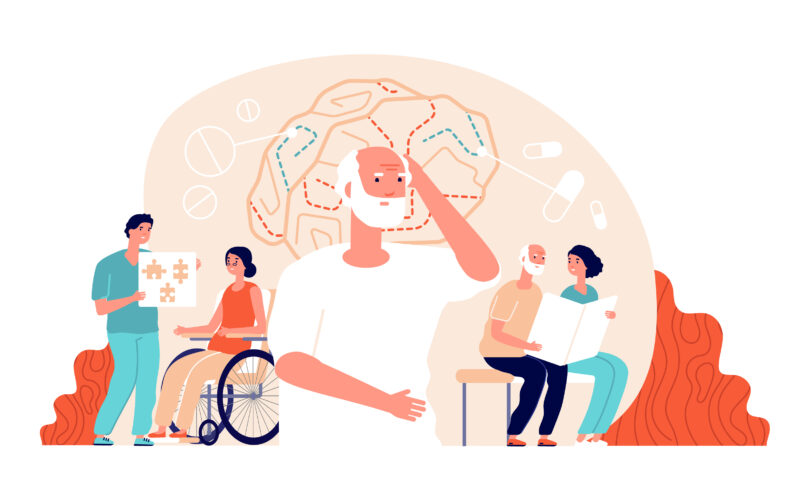The needs and challenges of older adults in assisted living, independent living and memory care settings can be numerous and hard to navigate for caregivers. Dr. Sandra Petersen, DNP, APRN, FNP-BC, GNP-BC, PMHNP-BE, FAANP, holds certifications in family practice, geriatric medicine and psychiatric-mental health and has been in active practice since 1993, addressing the questions of seniors and their caregivers to ensure older adults live fuller, happier lives.
Question: My father has struggled with alcoholism for most of his adult life and is having difficulty with short-term memory. How does alcohol contribute to early onset dementia, and how should it be handled differently?
Answer: Alcohol use increases the risk of dementia, a key symptom of which is memory loss. Research studying alcohol and memory loss confirms that alcohol interferes with the functioning of the hippocampus, the memory center of the brain, in a number of ways. When the body metabolizes alcohol, the resulting products interfere with cellular processes and interrupt communication between brain cells and the rest of the cells in the body. Alcohol-related dementia, for that reason, is considered a type of alcohol-related brain damage.
Typically, the person with alcohol-related dementia has difficulty with:
- Staying focused on a task without becoming distracted
- Problem-solving, planning and organizing
- Goal-setting, reasoning and judgment
- Motivation to do tasks or activities (even essential ones like eating, drinking or taking a bath)
- Controlling emotions (including irritability and angry outbursts)
- Empathy toward other people’s ideas or feelings

The symptoms of alcohol-related memory loss may differ considerably from person to person. If a person with the condition has brain imaging, it may show that some areas of the brain have actually decreased in size. Alcohol particularly affects the frontal lobes of the brain in addition to the hippocampus.
There are two main types of alcohol-related brain damage that can cause memory loss: alcohol-related dementia and Wernicke-Korsakoff syndrome. Neither is an actual type of dementia because individuals cannot “recover” from progressive dementias (like Alzheimer’s or vascular dementia), and there is some chance of recovery in both of these conditions—if the person can stop drinking.
A person who has alcohol-related brain damage has cognitive problems caused by alcohol’s effect on their brain, but they are also likely addicted to alcohol. They have become dependent on alcohol intake, which makes it much more difficult to treat. Both the individual’s alcohol addiction and their symptoms related to memory and thinking must be addressed.
About one in 10 people with dementia have some form of alcohol-related brain damage. In people with early-onset dementia (who are younger than 65), alcohol-related damage affects about one in eight individuals, according to research. It’s likely, for a number of reasons, the condition is under-diagnosed, which means this number is probably higher. Individuals diagnosed with alcohol-related brain damage are usually between 40 and 50 years of age. This is younger than the age when people usually develop the more common types of dementia, such as Alzheimer’s or vascular dementia, which is typically in the mid to late 60s.

It’s still not clear why some people who drink too much alcohol develop alcohol-related brain damage, while others do not. The condition affects men more frequently than women. However, women who have alcohol-related brain damage tend to exhibit symptoms at a younger age than men, and after fewer years of alcohol misuse.
Here are some interventions that may help the person with alcohol-related brain damage:
- Support the person to stop drinking alcohol. This will give them the best chance of recovery. Twelve-step groups (like Alcoholics Anonymous) can be very helpful; caregivers and loved ones can find benefit in attending support groups like Al-Anon for children of alcoholics. Hotlines like the one offered by SAMHSA (800-662-4357) can offer support and resources as well.
- Support the person doing things that will help them to keep and improve their skills. For example, if they’re struggling with grocery shopping, aim to do it with them, not for them. Give them responsibility for the parts of the shopping they can successfully complete (meal planning, checking items off the list, etc.).
- Ask professionals involved in the person’s care what you can do to provide support.
- Encourage the person to keep a diary. Structure and a daily routine are critical to supporting memory.
- Break down complex tasks into smaller steps to make them easier to follow, such as cooking a meal. Do one step at a time, completing it before moving to the next.
- When you’re talking to the person, be patient, use short sentences, and summarize what you have said. Give them time to process the thought and respond. Encourage them when they’re speaking.
- Support the individual by placing labels on cabinets and arranging rooms and drawers so items are easy to find. This helps with some of the frustration/anger/irritability noted in these individuals who have difficulty with finding items.
- Encourage the person to eat a balanced diet and take in sufficient water (roughly 64 ounces a day for most people). It’s important to eat healthy meals every day to make sure they’re getting enough vitamins to support brain function.
- Help the person build healthy habits. Keeping up their general well-being and hygiene, such as getting enough sleep and performing personal hygiene activities (bathing, shaving, wearing clean clothes, etc.), can help with rehabilitation.
- Support the person in attending self-help groups for addiction and seeking medical assistance.
Medical treatment plans for those suffering the effects of alcohol must be individualized. In addition to dealing with the treatment of addiction, the person may need thiamine (vitamin B1) supplementation or medications to help protect and support liver function.


